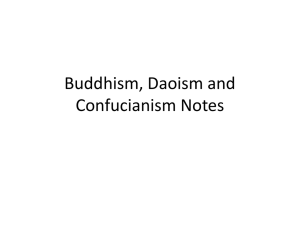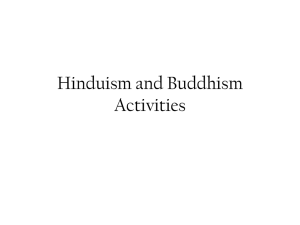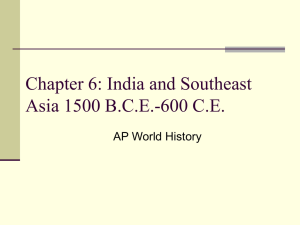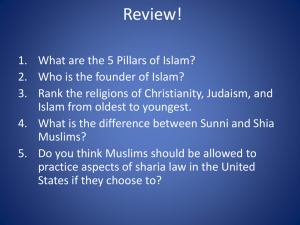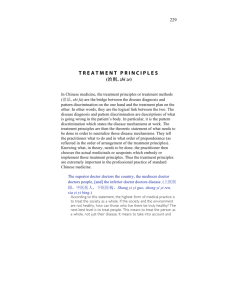File
advertisement
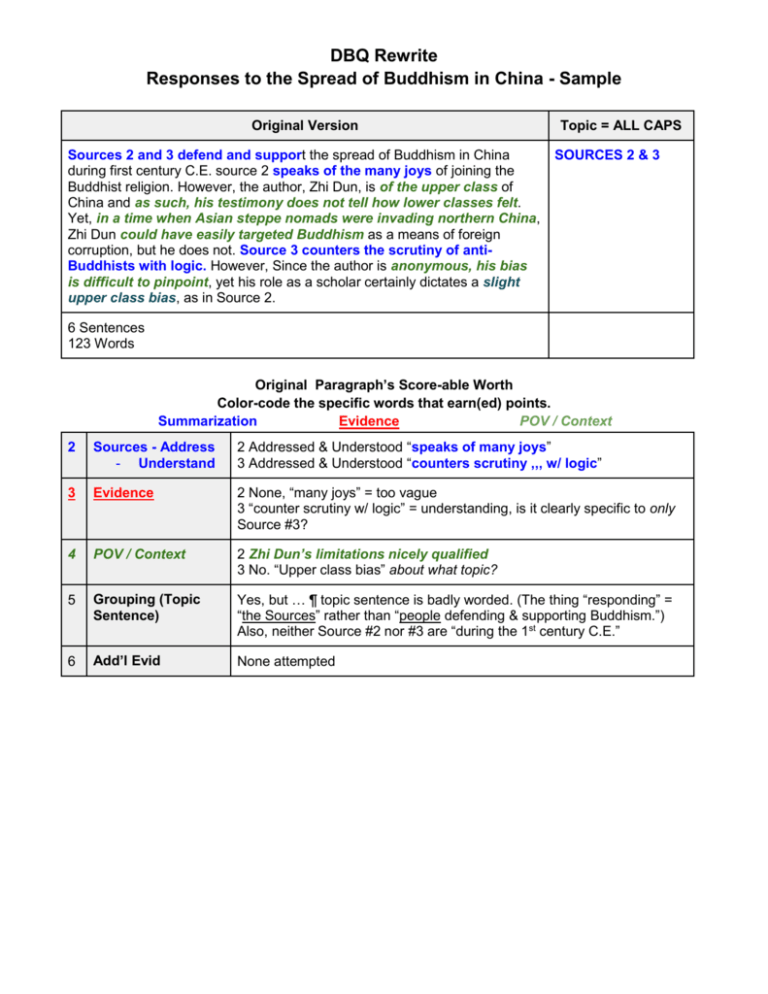
DBQ Rewrite Responses to the Spread of Buddhism in China - Sample Original Version Sources 2 and 3 defend and support the spread of Buddhism in China during first century C.E. source 2 speaks of the many joys of joining the Buddhist religion. However, the author, Zhi Dun, is of the upper class of China and as such, his testimony does not tell how lower classes felt. Yet, in a time when Asian steppe nomads were invading northern China, Zhi Dun could have easily targeted Buddhism as a means of foreign corruption, but he does not. Source 3 counters the scrutiny of antiBuddhists with logic. However, Since the author is anonymous, his bias is difficult to pinpoint, yet his role as a scholar certainly dictates a slight upper class bias, as in Source 2. Topic = ALL CAPS SOURCES 2 & 3 6 Sentences 123 Words Original Paragraph’s Score-able Worth Color-code the specific words that earn(ed) points. Summarization Evidence POV / Context 2 Sources - Address - Understand 2 Addressed & Understood “speaks of many joys” 3 Addressed & Understood “counters scrutiny ,,, w/ logic” 3 Evidence 2 None, “many joys” = too vague 3 “counter scrutiny w/ logic” = understanding, is it clearly specific to only Source #3? 4 POV / Context 2 Zhi Dun’s limitations nicely qualified 3 No. “Upper class bias” about what topic? 5 Grouping (Topic Sentence) Yes, but … ¶ topic sentence is badly worded. (The thing “responding” = “the Sources” rather than “people defending & supporting Buddhism.”) Also, neither Source #2 nor #3 are “during the 1st century C.E.” 6 Add’l Evid None attempted DBQ Rewrite Responses to the Spread of Buddhism in China - Sample Now, revise that paragraph so that it earns more points per the EBQ Rubric without needing to be much (if any) longer. See the sample if you’re not sure how to do this. Rules: 1. 2. NO sentence can begin with the word “Doc” or “Source” (or even “In doc # …”) The verb “says” is outlawed (same w/ “states, writes”) Be more specific than just copying “what” each doc/source “says.” Describe the tone/purpose/intended audience behind what each author “said.” REVISED Version For a few centuries after arriving in China, Chinese defended and supported Buddhism. Zhi Dun praised Buddism as providing a path to nirvana, though as an upper class scholar who probably did not personally feel threatened by invading nomads, his testimony does not necessarily reflect the danger lower classes likely felt. (2) Over time other scholars felt the need to create logical “instruction manuals” for how to defend Buddhism against illogical “cause for suspicion.” (3) However, since the author is a scholar, albeit anonymous, he might well share the same lack of real-world credibility as Zhi Dun. One would need a non-scholar’s impression of Buddhism to better compare how the average citizen responded to Buddhism’s promise of a better life. Both Zhi Dun and the Anonymous scholar faithfully and accurately reflected Gautama’s original teaching, that “eliminating craving” would “Stop Sorrow” (1) Topic = ALL CAPS CHINESE DEFENDED AND SUPPORTED BUDDHISM (FOR A FEW CENTURIES) 6 Sentences 141 Words REVISED Paragraph’s Score-able Worth Color-code the specific words that earn(ed) points. Summarization Evidence POV / Context 2 Sources - Address - Understand 2 Addressed & Understood “Zhi Dun praised Buddhism” 3 Addressed & Understood “instruction manuals” for how to defend Buddhism 1 Addressed & Understood “Gautama’s original teaching,” 3 Evidence 2 “nirvana” = specifc to Zhi Dun 3 “cause for suspicion” more specific than “logic” 1 “Stopping of sorrow,” and “craving.” 4 POV / Context 2 “not reflect danger lower classes felt.” 3 “lack of real-world credibility” 5 Grouping (Topic Sentence) ¶ Topic = “defense & support of Buddhism.” 6 Add’l Evid Non-scholar, to compare to elite scholars’ opinions.
